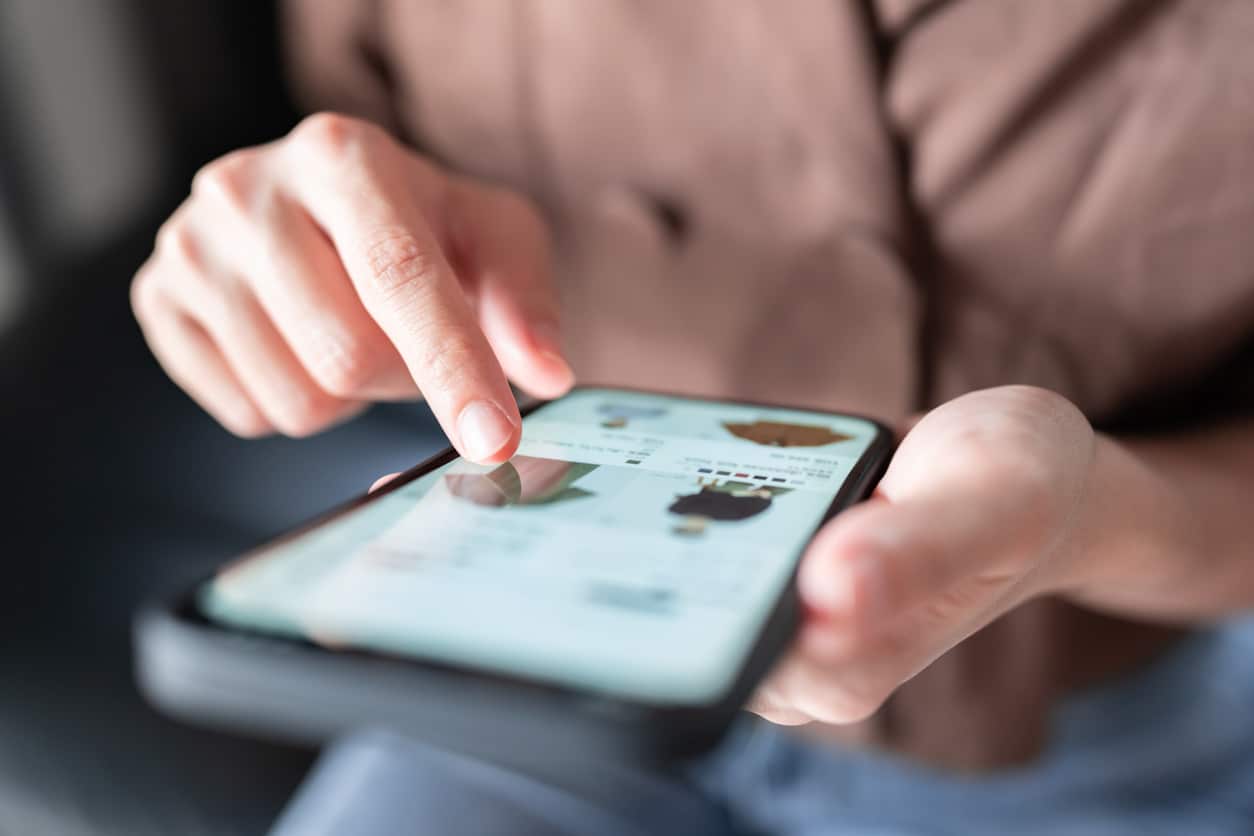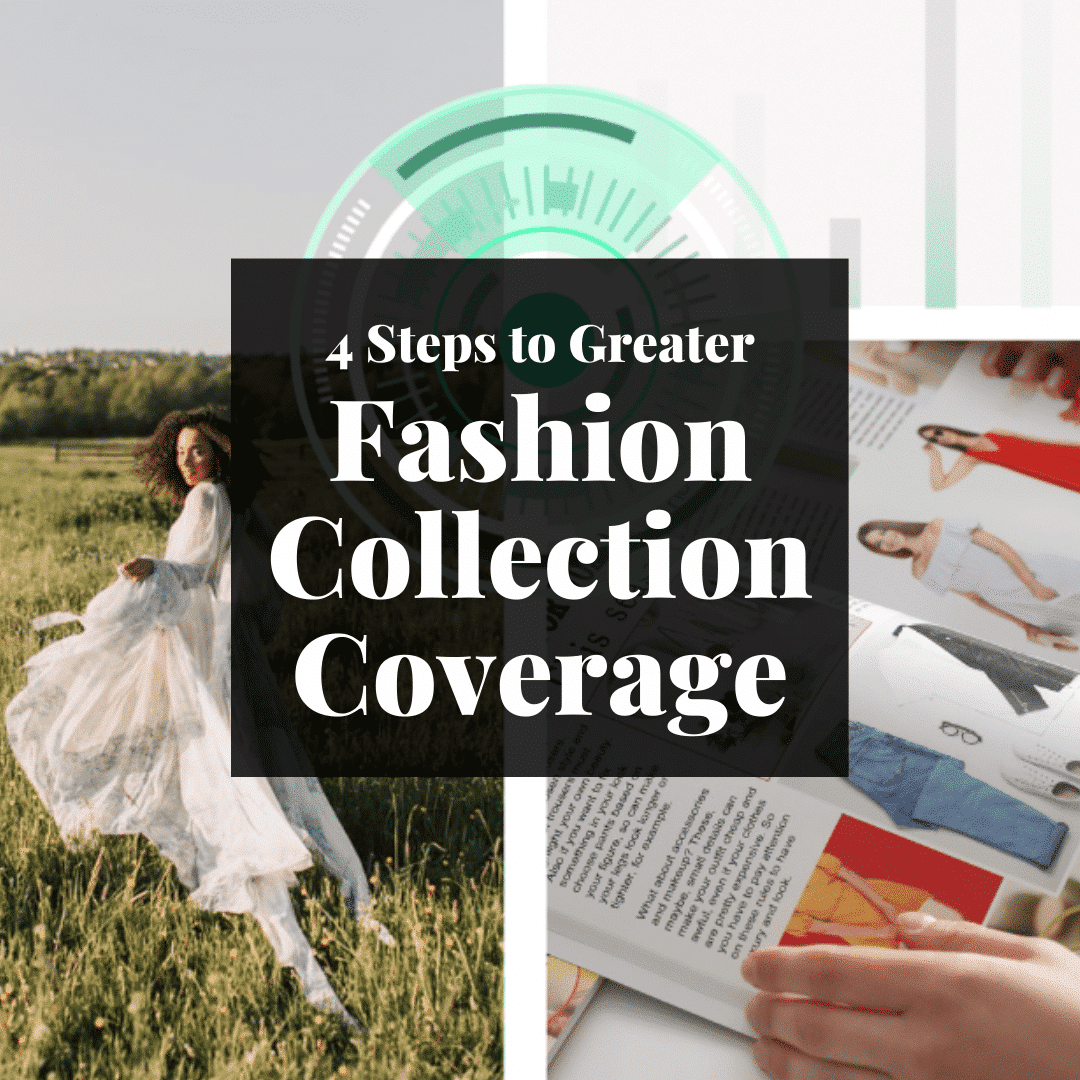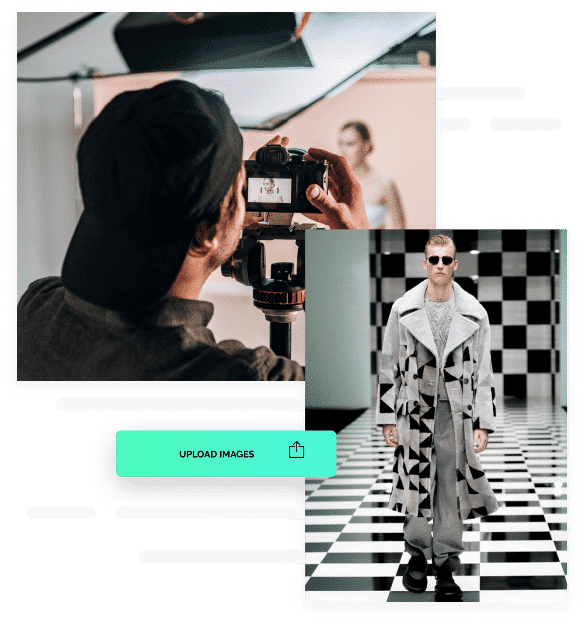In the fast-paced world of fashion e-commerce, one element stands above all else: beautiful, high-quality images. Far from being solely aesthetic, these images serve multiple purposes across various departments. They’re fundamental to the success of any fashion brand.
In this post, we’ll explore how to create e-commerce visuals that not only showcase your products but also drive conversions. We’ll look at how to streamline your image-making process. Whether at the planning, production, or distribution phase, maximize the ROI of every visual and consistently deliver high-converting fashion e-commerce images.
For well over a decade, our team of photographers at Launchmetrics Spotlight have been shooting the best industry images globally, helping brands to make an unparalleled impact in their targeted regions. Thanks to their expert feedback, we’ve put together this post to walk you through how to create fashion e-commerce images that convert. So, let’s get started.
In this article you’ll learn…
Fashion e-commerce: Start with the Big Picture
It all starts with planning. In fashion e-commerce, images can often serve multiple purposes and be utilized by various departments. Therefore, it’s critical to break down departmental silos and take a broad perspective – right from the planning stage.
Consider all the different platforms and processes you require images for upfront. Think about your e-commerce website, social media, newsletters, press releases, and even your virtual showrooms. Define the image requirements for each. This will guide you in creating versatile images that meet diverse needs, tell your brand story, and maintain consistency.
By taking a broader viewpoint from the planning phase, you can streamline the production process. You can also eliminate redundancies, ensuring that every image contributes maximum value to your brand.
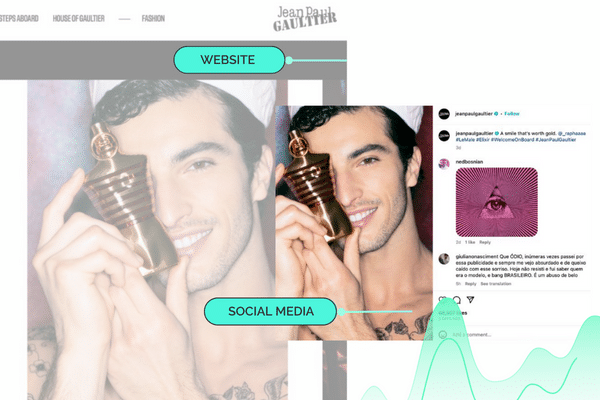
Jean-Paul Gaultier imagery used across the brand’s website and social media.
Show Reality, Make Space for Fantasy
Of course, the photos themselves must be high quality, visually appealing, and consistent in order to sell a product. But there’s more to it than that.
Fashion e-commerce photos can be something of a tightrope walk between fantasy and reality. You want them to be as accurate as possible so customers have clear expectations of what they’ll receive. After all, products not matching up to their photos is a common reason for returns. At the same time, you want the customer to be able to project the product onto themselves and imagine their life being better with that product in it.
If you engage an experienced team to create visuals for you, they’ll be well-versed in striking the right balance. Here are a few things to keep in mind.
“The power of great fashion imagery is to show a fantasy, to make you dream, to make you fall in love. You need to create desire for the clothes and make them inspiring and as fantastic as possible. That’s why great fashion image-makers are so successful and so important to a fashion brand.”
Says renowned fashion photographer, Nicholas Knight CBE
Fashion eCommerce Product vs. Lifestyle Shots
There are many types of Fashion e-commerce images to think about; Flatlays, modeled shots, runway shots, etc. It can help to think broadly in terms of product shots or lifestyle shots.
- Consider product shots as the reality (the “what”). These should use a stripped-down, straightforward approach to provide customers with a clear and accurate representation of the product. Consumers can then examine details like color, texture, and design.
- Lifestyle shots add context and awaken the customer’s imagination (the “who,” “where,” “when,” “why,” and “how”). These images weave a narrative around the product, show how your brand values align with the customer’s, and evoke emotional responses. Given that consumer purchasing decisions are overwhelmingly emotion-based, this is a crucial aspect to nail in your image-making.
- Balancing both types of imagery can give customers a holistic understanding of the product – its reality and its potential – and amplify your opportunities for press coverage.
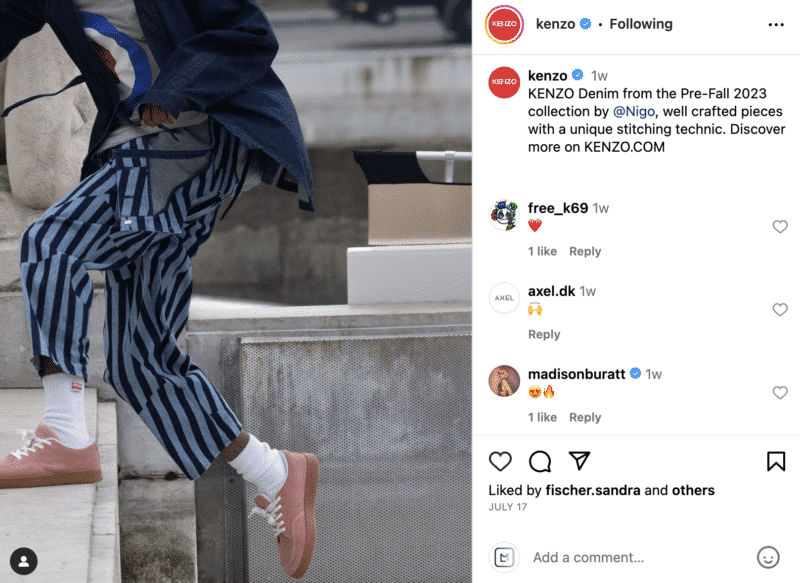
Lifestyle image from Kenzo showing how their denim can be worn and styled.
Using the Right Models for Your Audience
When shooting models – whether for a studio lookbook or a lifestyle shoot on location – it’s important to choose ones your target audience will connect with.
Think about geography as well as other factors. For example, in one study by Dr. Ben Barry, North American women were more likely to make a purchase if the model looked like them in terms of age, race, and size. Chinese women responded better to models who reflected the Western beauty ideal. Trends in different global markets are always changing. It’s important to keep a finger on the pulse of what’s resonating with each audience.
Go for Maximum ROI, Not Minimum Spend
Creating Fashion e-commerce images that convert requires more than a camera. It requires skilled photographers, stylists, and other team members, depending on the type of shoot. As such, you need to weigh up the option of creating images in-house over having a team of trusted professionals to do it for you.
Often, smaller brands mistakenly assume that creating their own images will be the cheapest option. However, due to the time and resources required, it quickly becomes apparent that this is not the case. It can also lead to inconsistency in image style, theme, and brand appearance. Letting an experienced external team handle the whole process can result in better brand and storytelling consistently, but also higher ROI – even if it requires a greater initial outlay.
Get Your Images Into The Right Hands (and Quickly)
A major challenge for fashion brands is getting their images produced, uploaded, and distributed quickly enough. Especially in this digital era where consumers and the media expect instant access and gratification.
Having a close relationship with an expert production services team, that has years of experience within the industry, means that Fashion e-commerce images can be professional enough to multi-purpose across departments.
Remember, delays in getting eCommerce photos uploaded to digital storefronts can result in lost sales, and being slow to respond to PR image requests can see you missing out on valuable press coverage.
The solution to these problems is having streamlined processes for delivering and storing images. Consider this situation: image files are stored on a cluttered desktop or scattered across multiple places. Your file names are confusing, and distribution is done using multiple Dropbox or WeTransfer emails that get lost or expire.
Meanwhile, on the media end, journalists, publishers, and PR teams are having to work to source, understand, and process your collection’s images. This process can lead to brands bring overlooked and links being lost. Unfortunately, many brands still rely on this archaic and unprofessional approach.
Once you have an expert team to equip you with multiuse and front-page quality images, you’re ready to accomplish the next stage in your Fashion image strategy. By investing in a more modern solution – that allows images to be stored in a digital, bespoke showroom -means brands can easily share content internally and externally and under just one link. A digital showroom solution can allow brands to share customized galleries with press contacts, help to amplify press coverage, and enable them to monitor the success of each visual to understand what’s most impactful.
Track How Your Fashion e-Commerce Images Are Performing
Which of your Fashion images is getting the most engagement? If you’re not sure, it’s time to start tracking! Metrics like page views, media shares, clicks, likes, and download counts can paint a clear picture of which visuals are working and which aren’t. You can use this data to fine-tune your approach to image creation, ensuring that every new set of visuals is informed by what’s proven successful in the past.
Tracking image performance is invaluable for multiple departments. For example, your sales team can gather powerful insights from tracking how images convert on eCommerce and social commerce. Meanwhile, PR and marketing departments should be tracking which images are being picked up in fashion press coverage so they can hone their strategies and target the right press contacts with the right types of visuals.
Patterns in data over time will allow you to see which images are working and why. This information can help you evolve your eCommerce visuals, drive your social campaigns, and maximize your press coverage.
The Perfect Journey for Fashion e-Commerce Images
So, what does the ideal journey for fashion e-commerce images look like? Let’s summarize by breaking it down into some actionable steps.
- Strategize considering the multiple uses of your images. Stop the silo of using them for only one purpose.
- Create beyond plain, flat, white background images – even for eCommerce. Tell your story and sell a lifestyle through your visuals.
- Call upon a production services team that knows the importance of image storytelling and is fluent in best-practice content creation.
- Forget hours sorting through disordered files. Have images delivered by your production team, stored in a central location for all departments, and presented professionally.
- Invest in a digital showroom solution to easily share images, boost coverage opportunities and gain valuable tracking data.
Don’t let your fashion visuals become an afterthought — by implementing the above tips, you can elevate them to be the powerful conversion tools they’re meant to be.


